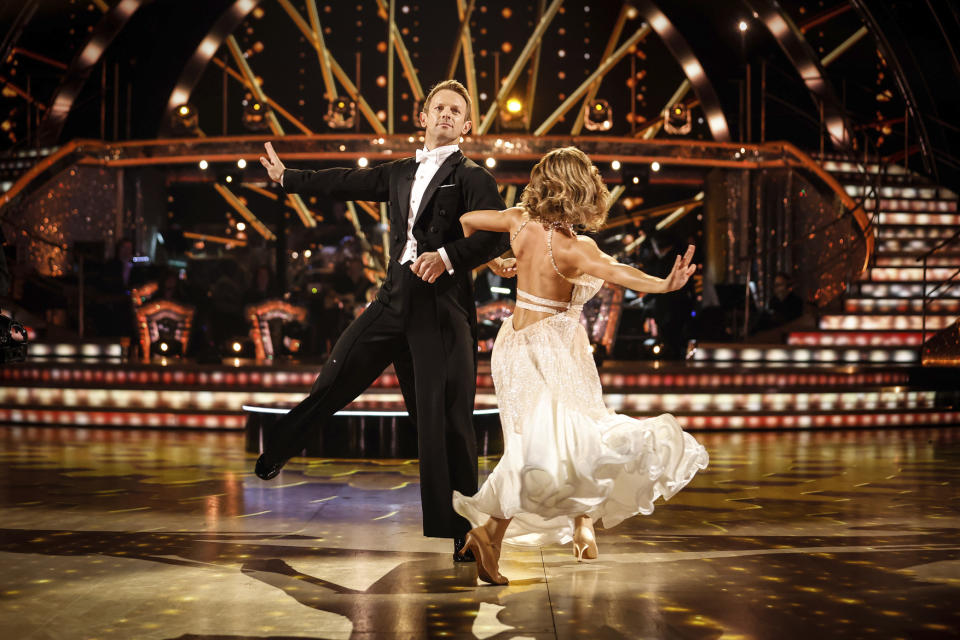

Strictly Come Dancing is back, dominating Saturday night TV all the way to Christmas. For the past 20 years, every autumn and winter, we’ve watched celebrities gradually evolve from stumbling beginners to consummate professionals – unless they happen to be the Anne Widdecombe or John Sergeant of their season.
But while over the years we’ve learned a lot about dance technique, we’ve also been picking up lessons that could come in very handy for our finances.
Don’t be embarrassed about not understanding something new
The whole point of the show is learning new skills, so nobody is ashamed of not knowing what to do with their standing leg or how to master the heel-lead at the start of the week.
They just ask, someone explains, and they learn.
It would be so much more effective if we could do this with money, but we often feel too embarrassed to admit we don’t know something.
Read more: Energy bills: What to expect this winter
There’s no reason feel ashamed. There’s every chance nobody has ever explained this stuff, so how else were you supposed to learn?
Learn from the experts
The celebrities are thrown into a training room with a professional, so it’s pretty clear to them where to go for help.
When we’re trying to get to grips with money, it might seem less straightforward. We tend to want to turn to family and friends, or our usual sources of information – including social media.
However, every aspect of your finances has experts who know their area inside out who are the best source of information — whether it’s debt charities understanding borrowing, investment companies helping you conquer investment, or your pension company or employer who know all about your pension.
Find the way you learn best, and use it
You can see the celebrities devising their own techniques, whether they have a secret language of their own, focus on physical cues from the partner, or have their professional shouting audible instructions throughout the performance.
Read more: Why you probably can’t afford a Thursday Murder Club retirement“
We all learn differently, so find your way.
There are useful books, like Claer Barrett’s What they Don’t Teach You About Money, or there are guides online or available from investment firms.
Most will also produce a range of videos and some have podcasts, so work out the easiest way for you to absorb the information and stick with it.

If it’s making you dizzy, focus on one thing
This is the only way to get through a Viennese Waltz without being physically sick, but it helps with money matters too.
It pays to decide the area of your finances that needs the most attention, and start there, rather than thinking you need to do everything at once.
As a very rough rule of thumb the order is to tackle problem debt, consider insurance and protection, build an emergency savings safety net, while simultaneously paying into a pension, and then look at investing to make the most of your money.
Take just the right amount of risk
We all remember those dances where a complicated lift went horribly wrong, but we’ve also seen plenty of forgettable and unimpressive dances where lower scores reflected the fact they played it too safe.
Read more: House prices: Is it better to rent than buy?
If you already have an emergency savings safety net and cash for planned spending in the next five years, taking no risk with money you don’t need for five to 10 years or more, and leaving it in cash, is a risk in itself.
This is because you have less of a chance of beating inflation.
It’s worth thinking carefully about the right level of risk for you, and the investments that may suit it.
While nobody wants to accidentally drop a dancer, spending half the running time faffing about on a chaise longue isn’t going to do you much good either.
Watch: How to save money on a low income
Download the Yahoo Finance app, available for Apple and Android.






